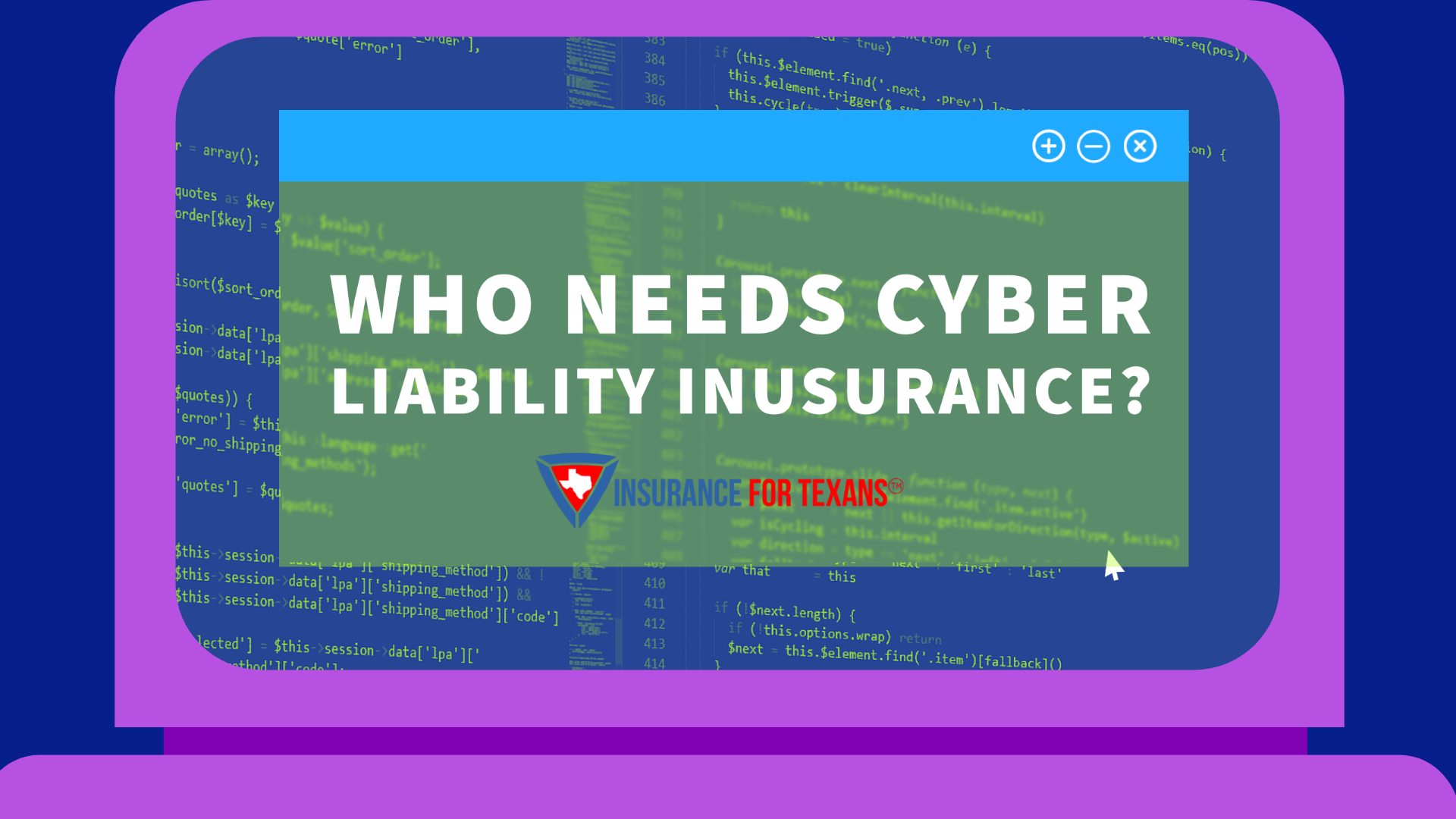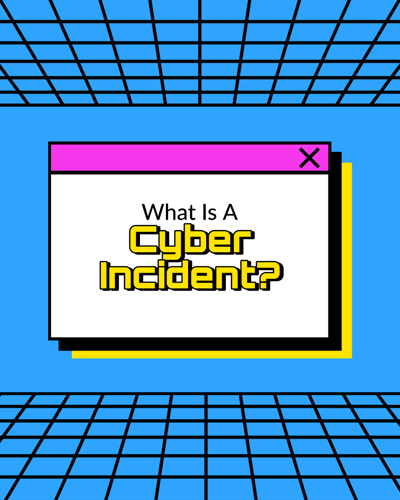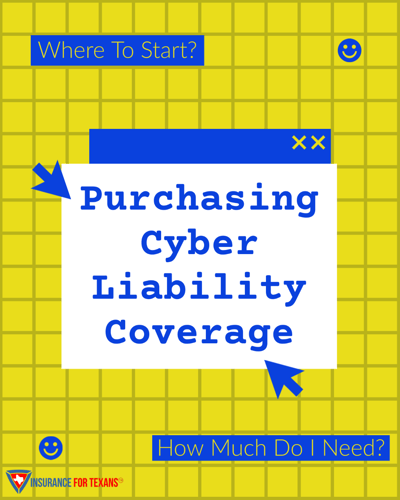Businesses questioning "when is the right time to get cyber insurance?" should make the move now. Cyberattacks are a growing problem, with the average one leading to over $200K in costs for any given company. Businesses can utilize commercial cyber insurance or data breach insurance to aid their recovery after a cyberattack.
Due to their budget constraints, small businesses typically prioritize investing in boosting their company, workers, and products. In the process of concentrating on their business growth and earning income, they can forget to focus on something essential for long-term success - cyber security.
All companies, both small and larger companies, should employ a two-pronged strategy: securing their organization and reducing additional risk via cyber insurance. Implementing strong cyber security guidelines is a great first step, but having a quality cyber liability policy can help fill the gaps in the event of claims. A cyber liability policy provides access to specialized resources and financial aid during the process of discovering, informing, resolving, and post-recovery activities following a cyber incident.

What is Cyber Liability?
Cyber liability insurance is a type of coverage that helps protect businesses from the financial losses associated with data breaches, cyber-attacks, and other digital risks. It provides protection against claims resulting from incidents such as stolen or lost data, unauthorized access to confidential information, denial of service attacks, ransomware attacks, and more.
The policy can also cover costs related to legal defense fees, notification services for affected customers, credit monitoring services for those impacted by the breach, and any fines or penalties imposed by regulatory bodies. Cyber liability policies are tailored to each business’s needs and typically include both first-party coverage (for costs incurred by the business) and third-party coverage (for damages caused to another party).
First-party coverage is designed to protect the business from financial losses associated with a cyber incident. This type of coverage typically includes expenses such as notification costs, credit monitoring services for affected customers, and legal expenses. It can also cover lost income due to downtime caused by the attack, as well as any fines or penalties imposed by regulatory bodies.
Third-party coverage is designed to protect businesses from claims resulting from damages caused to another party due to a cyber incident. This type of coverage typically includes expenses such as legal defense fees, settlements or judgments, and any fines or penalties imposed by regulatory bodies.
While they can be purchased separately with some carriers, it is advised that business owners consider cyber liability policies which include coverage for both first and third-party cyber claims.
What Is a Cyber Incident?
A cyber incident is any event that results in unauthorized access, use, or destruction of data or systems. This includes malicious attacks such as malware, ransomware, phishing, and distributed denial of service (DDoS). It can also include accidental events such as human error or system failure.
No matter how it happens, a cyber incident can have serious financial and reputational consequences for businesses. It can lead to lost data, stolen intellectual property, damaged systems, and more. In addition to the direct costs associated with the incident itself, businesses may also face fines from regulatory bodies or legal action from affected customers. That’s why it’s important for companies to be prepared with the right cyber liability insurance policy in place.
How Much Coverage Do I Need?
The amount of cyber liability coverage you need depends on the size and type of your business. Generally, it’s recommended that businesses purchase a policy with limits that are at least equal to their annual revenue. However, some companies may require more or less coverage depending on their specific needs.
When determining how much coverage to purchase, consider the potential financial losses associated with a cyber incident. This includes not only direct costs such as legal fees and notification services but also indirect costs such as lost revenue due to downtime or reputational damage resulting from negative publicity.

In Addition to Coverage
In addition to purchasing a cyber liability policy, businesses should also take proactive steps to protect their data and systems. This includes implementing strong security measures such as encryption, multi-factor authentication, and regular software updates. It also means educating employees on best practices for data security and regularly testing systems for vulnerabilities. By taking these steps, businesses can reduce their risk of a cyber incident and ensure they have the right coverage in place if one does occur.
Implementing strong cyber security policies can also help your business get the best premiums for cyber liability insurance. In underwriting your cyber threat assessments will be reviewed by an underwriter for the likelihood of an attack. If you have proactively strengthened your controls and have the right cyber security measures in place your underwriter is likely to apply for greater credits. Cybercriminals are looking for easy targets and underwriters know the more you have in place security-wise, the harder it will be for a criminal to infiltrate your systems.
Purchasing Cyber Liability Coverage
When it comes to purchasing cyber liability insurance, there are a few options available. Businesses can purchase a standalone policy or add coverage to an existing business insurance policy. It’s important to research the different policies and understand what is covered and excluded from each one.
It is also very important to know how each cyber insurance policy will respond to a cyber event. Cyber insurance policies will include one of two provisions, pay on behalf of or reimbursement. Knowing which policy you have is extremely important.
Pay on behalf of coverage means that the insurance company will pay for any costs related to a cyber incident, such as legal fees or notification services, up to the policy limit. This type of coverage is beneficial because it allows businesses to respond quickly and efficiently to a cyber incident without having to worry about coming up with the funds themselves.
Reimbursement coverage means that the business (you) must pay for any costs associated with a cyber incident out of pocket and then submit a claim for reimbursement from the insurance company. This type of coverage can be beneficial in certain situations, but it does require businesses to have access to funds in order to respond quickly.
Where to Start
When researching cyber insurance policies, seek out one which not only meets your company's budget and individual requirements but also covers any potential risks. As businesses function differently from each other, no single insurance policy is suitable for all. Discuss with your insurance agent the options available for your particular cyber risk. An independent agent can help you review your individual risks and provide recommendations on appropriate cyber insurance coverage options for your business.
As the need for cyber liability insurance coverage continues to grow it is important that your review the coverage options with your agent regularly. If you have a current policy and are unfamiliar with what it covers or if you would like to discuss a new cyber liability insurance quote our agents are happy to assist.




